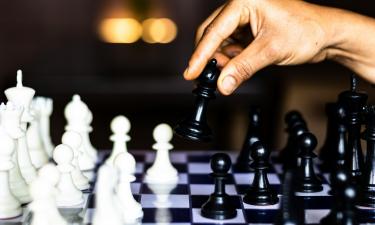What will happen to Cuba after Castro's era ends?
The 60-year era of the Castro brothers is coming to an end in Cuba, Western media write, expecting the country's shameful rollback from the Island of Liberty to the island of the western henpecked state.
Raul Castro to retire
On Friday, April 16, the 8th Congress of the Cuban Communist Party opens in Havana. During the Congress, the 89-year-old Raul Castro is expected to submit his resignation from the post of the Secretary General and the Supreme Commander-in-Chief.
He said this himself in 2016. The new leader of the country, as it is believed, will be Miguel Diaz-Canel, who took over as president (chairman of the State Council) of the country in 2018.
But the real question is whether something is going to change in the Cuban system. The US is very hopeful of it as Washington is anticipating a moral decline for the Cuban revolution.
Raul is the strong point of the tandem with his brother
Raul has always been a strong point of the tandem with his brother Fide. He had no charisma, but he had excellent organizational skills. It was Raul who chaired the talks with the USSR on the deployment of Soviet missiles in Cuba in 1962, which led to the Cuban missile crisis, which solved the problem of US medium-range missiles in Turkey for the USSR.
In January 1959, Fidel offered to elect his brother to the leading post of the party in the event of his death. In June 2001, he said:
"After me, he has the most experience, the greatest knowledge and the greatest authority, although perhaps he is little known."
Since April 19, 2011, Raul Castro has been the leader of the ruling Communist Party of Cuba. From February 24, 2008 to April 19, 2018, he served as the chairman of the Cuban State Council. This is the highest public office in the country. Among other things, the Chairman of the State Council acts as the Chairman of the Council of Ministers and the Supreme Commander-in-Chief.
Raoul tried to mend relations with the United States
During his 15 years in power, Raul was pursuing a number of economic reforms and even began to unblock relations with the United States. Cuba has suffered losses of $130 billion in more than 50 years of economic blockade.
Donald Trump revisited the hard line against the Island of Liberty, which ultimately nullified vestiges of economic progress while the blockade and sanctions were maintained.
Before leaving, the Trump administration imposed sanctions against Raul Castro and his family for "gross violations of human rights." As First Secretary of the Central Committee of the Communist Party of Cuba, Raul Castro was responsible for actions aimed at supporting "the former Maduro regime in Venezuela," US officials then said. Indeed, Castro has never abandoned anti-imperialists, one has to give him credit for that.
'Raulism' — Vietnamese or Chinese model
In February 2019, Cuba held a popular vote which introduced amendments to the country's Constitution. Thus, the Cubans were allowed to own private property. The Constitution also stipulates that the state will control private sector income does not exceed a reasonable limit nor does it contradict to the principles of social justice.
This year, the party leadership decided to open more than 2,000 types of economic activities to the private sector, which already employs 13 percent of the population. However, the pandemic struck the Cuban economy hard, especially tourism (GDP fell by eleven percent). Nevertheless, Cuba has developed its own coronavirus vaccine.
Cuba's strategic sectors, such as defense, education, health care, mining, most of the mechanical engineering, are still owned by the state. In a nutshell, the Cuban model is more reminiscent to the Vietnamese or Chinese model. At the same time, the Cuban model cannot develop because of the American blockade.
Diaz-Canel — heir to the revolution
Raul's successor, Miguel Diaz-Canel, 58, an electronics engineer, has been involved in party work since 1994, when he became secretary of the Communist Party in the province of Villa Clara. Canel is committed to reforming the system in the direction of the so-called Raulism: more market freedom against the background of the Communist Party leadership.
According to the Constitution, Diaz-Canel will be able to rule the party and the state for a maximum of two terms ten years each. Obviously, he can achieved a lot if it was not for the embargo.
The West is looking forward for the Castro era to end. We can only wait and see what the Cubans will do and whether they can stand up to their values.
Subscribe to Pravda.Ru Telegram channel, Facebook, RSS!





